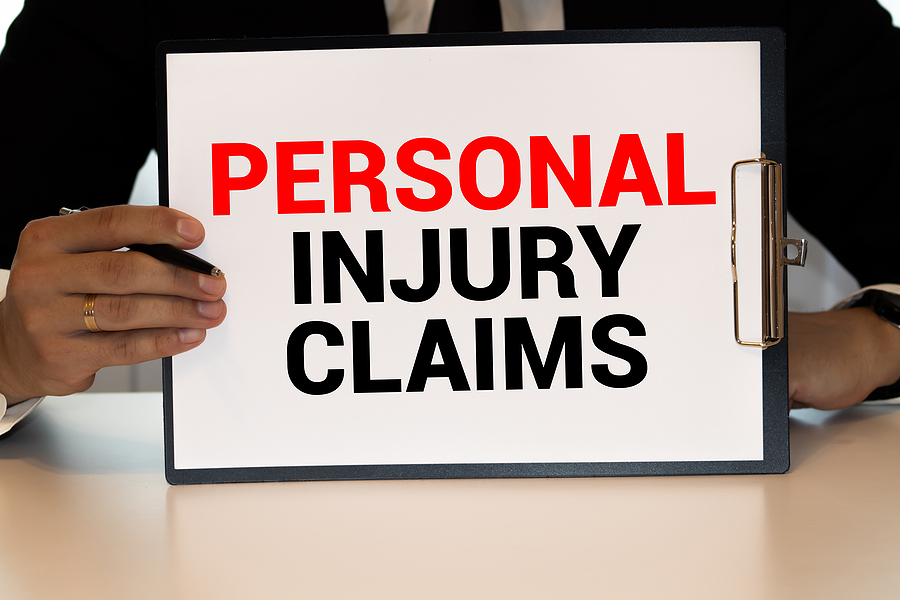After being injured in a serious accident that was no fault of their own, the law provides personal injury victims certain relief for their subsequent damages and losses. They can be awarded compensation to cover their hospital and medical bills, pain and suffering, lost wages from missing work, and much more. But personal injury victims typically have a lot of questions about collecting compensation from a negligent party’s insurance company.
Continue below to review some of the most frequently asked questions personal injury lawyers get from their current and prospective clients about accident claim settlements, and perhaps get the answers you are looking for today, including where you can get more answers to your personal injury claim questions at the bottom of this blog.

Will My Settlement Be Impacted if I am Partly to Blame for My Accident?
When an individual is seriously hurt in an accident, it is necessary to determine who was at fault for the incident. This process of determination is called comparative fault analysis, and it is widely used as a standard in tort cases. The jury gives this report to the judge at the closing of a personal injury trial. Comparative fault analysis simply describes the standard formula used to identify the negligent party involved in a serious accident, however, there are numerous details that go into making these distinctions. Fundamentally, if a victim or plaintiff is 50% (or less) at-fault in the case as compared to all fault against all defendants, then they are most likely entitled to basic compensation. In Indiana, a plaintiff cannot have 51% fault or greater and be awarded compensation.
Where Can I Find Answers to My Personal Injury Questions?
If you have questions about personal injury compensation, it is vital to discuss your claim with a team of licensed Indianapolis Indiana accident attorneys. They can give you personalized recommendations for your case, and document an impactful claim to recover the full and fair compensation you deserve. As soon as you receive medical attention for your injuries, your next step should be to contact a personal injury law firm for help with your accident claim.
How Much Does an Accident Lawyer Charge?
Contingency fees are the most common form of billing practice used by personal injury law firms and attorneys. This payment arrangement works by not charging clients any retainers or upfront lawyer fees, but collecting a percentage of whatever monetary settlement they recover for them. Personal injury claims are complex and vary from case to case, so the percentage collected upon judgment will vary among lawsuits.
How Does a Court Assess an Injured Victim’s Damages and Losses?
Under tort law, when a person is a victim of a civil wrong-doing, a court may award damages to compensate them for their injuries and losses. Assessing the amount of damages is often a difficult and complex process since so many variables influence the final determination. A court/jury must consider the losses or injuries of a victim’s person, property, and overall quality of life. Courts take this responsibility seriously since the law intends to help victims of personal injury get back to the condition and state of life they were in before their accident and if that is not possible, to compensate for the permanent injuries. It requires evidence on behalf of the victim to recover the full and fair amount of compensation for the total amount of damages and losses. Evidence includes medical records, police reports, expense records, witness statements, interviews, doctor depositions and much more.
What Does Personal Injury Compensation Cover?
Economic losses, non-economic losses, and future economic losses are the types of damages meant to be covered by personal injury compensation. Economic losses may include all or a combination of medical expenses, hospital bills, OTC medication costs, prescription costs, lost wages, childcare expenses, home adaption expenses, and fuel costs (to and from doctors’ visits). Future economic losses may include prolonged medical treatment, physical therapy, long-term care, future medical expenses, future lost wages, future prescription costs, and future hospital costs. Non-economic losses may include pain and suffering, permanent disability, permanent disfigurement, mental anguish, PTSD, loss of social life, loss of work abilities, loss of companionship, and loss of education experience.
How Long Does it Take to Get My Compensation?
From start to finish, a personal injury case can take anywhere from one year to five years or more, depending on the complexity of the case and how long the injured party needs medical care. You can expect it, in most cases, to take at least one year before a case is settled. There are countless variables that affect the time frame of a personal injury claim and receiving awarded compensation. Again, talk to your attorney to get a better idea of how long your particular case is predicted to take. In some cases, a settlement can and does occur within 1 year though.
Personal Injury Attorneys in Indianapolis, Indiana Who You Can Trust
Call the Law Office of Craven, Hoover, and Blazek P.C. at 317-881-2700 for information about your rights to pursue legal action after being seriously injured in a wrongful personal injury accident in Indianapolis, Indiana. Attorneys Daniel Craven, Keith Blazek, and Ralph Hoover are highly experienced accident lawyers who will obtain the full and fair compensation you rightfully deserve for your damages and losses. Not only do we offer free initial consultations, in-person or over the phone, we also work in contingency, which means we never collect attorney fees unless we recover a settlement or verdict for you. Contact us today at 317-881-2700 to set up your free case evaluation with a seasoned Indianapolis accident attorney. We represent injured persons throughout the State of Indiana.

